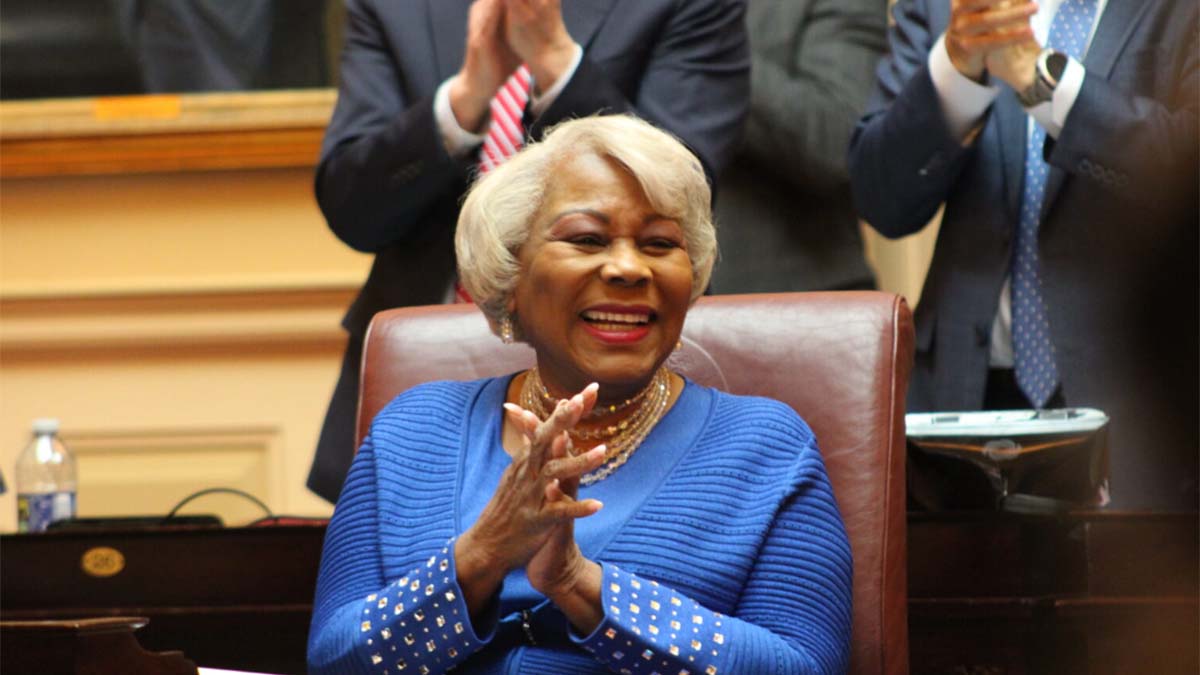Legislation to raise the state minimum wage to $15 per hour by 2026 is moving briskly through the Virginia General Assembly as Democrats take advantage of their narrow majorities in both chambers to complete an effort they began in 2020.
“This is a simple bill,” said Sen. Creigh Deeds, D-Charlottesville, who chairs the Senate Commerce and Labor Committee. “It just reenacts what we did before.”
This story was reported and written by our media partner The Virginia Mercury
Carried by Sen. Louise Lucas, D-Portsmouth, as Senate Bill 1 and Del. Jeion Ward, D-Hampton, as House Bill 1, the legislation is a signature priority of Democrats this session and would bring the wage to $13.50 in 2025 and $15 in 2026. The measure cleared the Senate and House committees on labor and commerce this week on party-line votes and is headed to the chamber’s money committees.
But while Democrats have the numbers to pass the increases out of the General Assembly, they fall short of what they would need to override a possible veto from Republican Gov. Glenn Youngkin. Asked about the governor’s stance on the proposals, spokesperson Christian Martinez said only that Youngkin “will review any legislation that comes to his desk.”
In 2020, when the party held more decisive control of the legislature and was backed by Democratic Gov. Ralph Northam, Democrats pushed through bills raising the state minimum wage incrementally from the $7.25 federal floor to $12 by 2023.
But because the chambers disagreed on how high the wage should go — House Democrats wanted $15, while the Senate was in favor of $11.50 and resulting smaller increases that varied regionally — the final law delayed further hikes until 2024, when the General Assembly would again be required to endorse them. It also asked for a study on whether regionally set minimum wages could be workable.
That study wasn’t completed until December 2023, and during debate in the Senate Commerce and Labor Committee Monday, many senators seemed unaware of its publication. Its findings indicated that a half-million Virginians were making $12 or less in 2021, with $1 million making $15 or less. Minimum wage workers were “younger, more likely to be female, less educated, and more likely to belong to a racial and ethnic minority than the total labor force.” They were most prevalent in Southwest Virginia and least prevalent in Northern Virginia.
Cost of living also varied widely: The study found that at the highest end of the spectrum, a family in Alexandria needed to earn $22.42 per hour to afford basic necessities, while at the lowest end, a Tazewell family needed $14.55 per hour.
As to whether regional variation in a minimum wage might offer a solution, the report was uncertain. “There is not conclusive evidence demonstrating the clear advantage or disadvantage of a regional minimum wage over a statewide minimum wage,” it found.
Republicans expressed unease over the varied impacts the wage hikes could have on less affluent parts of the state.
“We ought to look at the impact of this legislation on other areas of the state first,” said Sen. Mark Obenshain, R-Harrisonburg, who described the bill as “an example of shooting first and asking questions later.”
Democrats, however, argued that cost of living hikes due to inflation have increased the urgency of the wage bumps. Senate Majority Leader Scott Surovell, D-Fairfax, noted that according to the U.S. Bureau of Labor Statistics’ inflation calculator, $12 in July 2020 was equal to $14.21 in December 2023.
“We’re just actually keeping up with inflation barely with this change,” he said.
In the House Labor and Commerce Committee, Republicans and business groups said Thursday that increasing the minimum wage would lead to problems with wage compression and further drive up costs.
“If you continue to ratchet up the cost of labor, you’re just going to continue to ratchet up the cost of products,” said Del. Wren Williams, R-Patrick. “You’re just going to create more struggle.”
Similarly, Del. Tony Wilt, R-Harrisonburg, said, “It appears that as the wage goes up, the cost of living is going to go up.”
“Do you ever see us getting ahead where folks are saying, ‘I make enough money, I’m good’?” he said.
Democrats countered that they had heard many of the same fears in response to the 2020 law beginning the wage increases.
“Those of us who were here when [Ward] led the last effort to do this remember all the hand-wringing and the predictions that people were going to lose their jobs and the economy was going to tank and businesses were going to shutter,” said Del. Rip Sullivan, D-Fairfax. “Well, I’ve sat through several speeches that our governor has given the last several months touting, thankfully, historic low unemployment in Virginia. Wages are up, incomes are up, more Virginians are working than ever before. Those predictions of doom and gloom just have not happened.”


